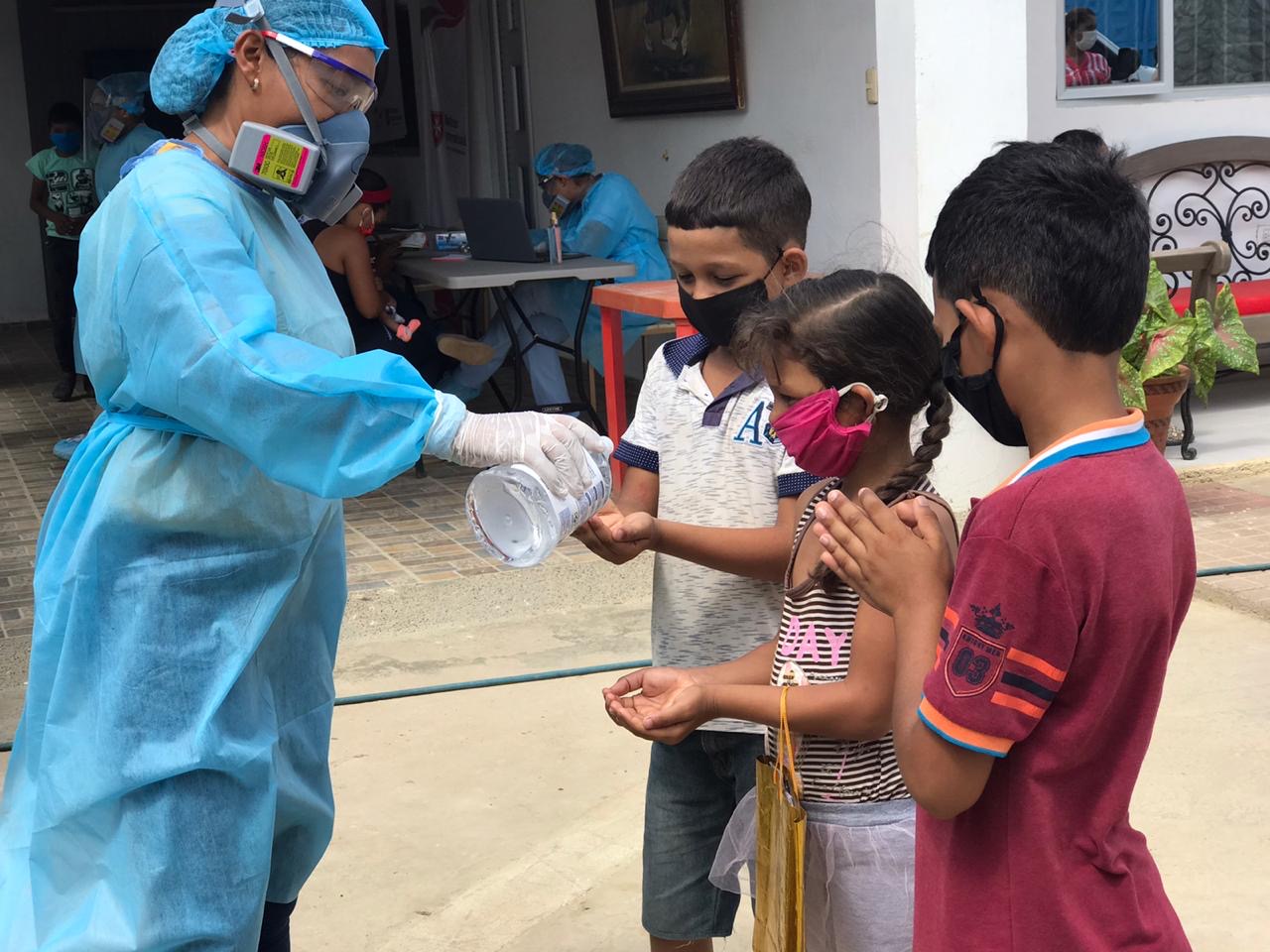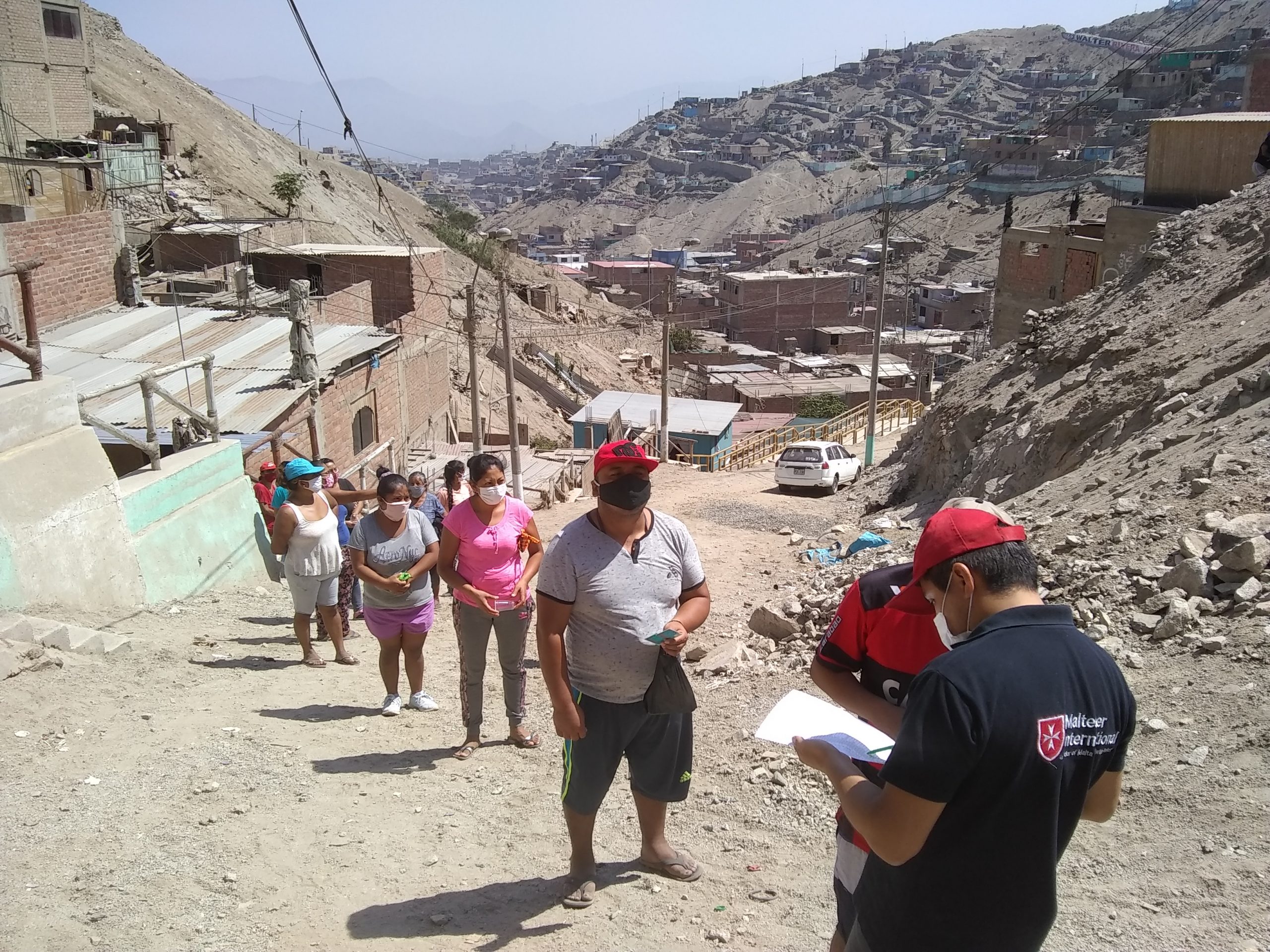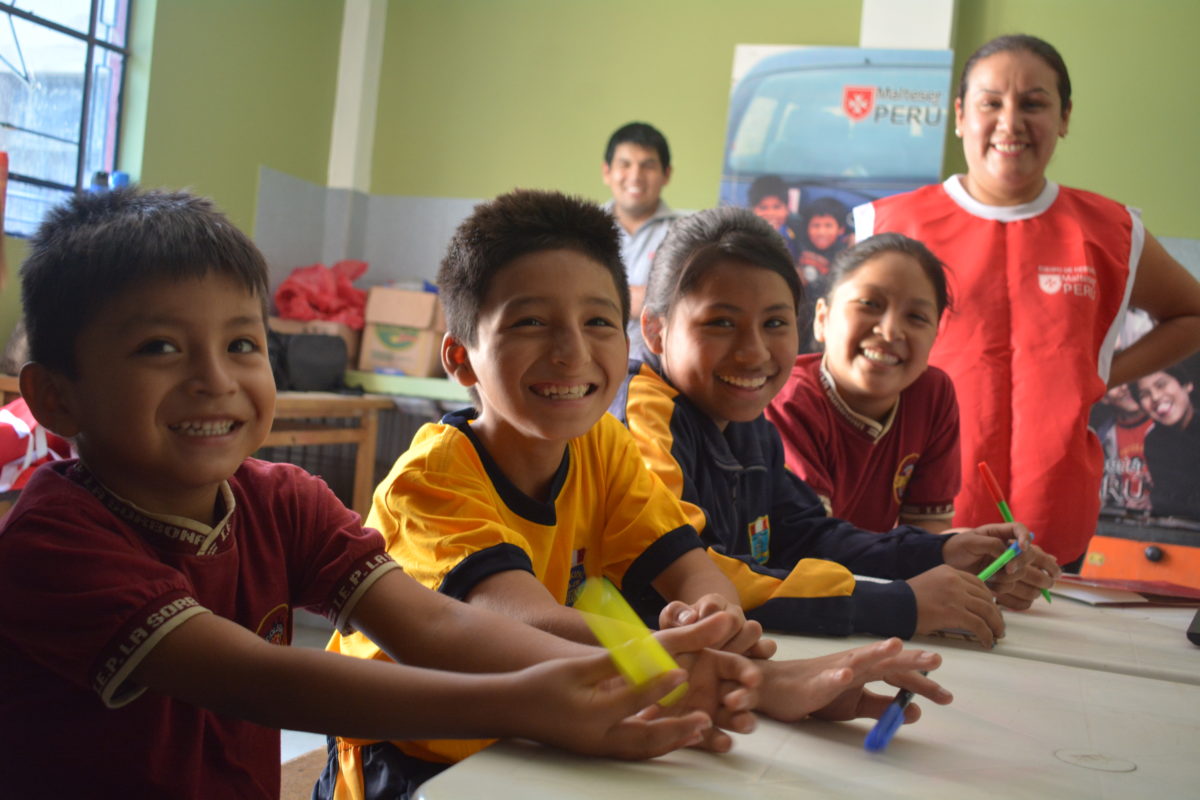South America
A Senior Center in Peru Brings Hope During the Pandemic
An earlier version of this article was originally published in the Order of Malta American Association’s Spring 2021 Hospitallers.
“How can you ask the people to wash properly if they have no access to water?” asks Melissa Huertas-Sanchez, Operations Director for Malteser Perú.
In a conversation in the fall, Huertas-Sanchez described one of the many daunting challenges that Peru, and particularly its elderly population, faced in the early phases of the COVID-19 pandemic. She had just returned from the northern city of Querecotillo, after a visit to one of the programs Malteser International Americas (MI Americas) supports which cares for the elderly through social activities and health check-ups. While there, she noticed a combination of issues facing the seniors participating in the program, including water shortages and frequent droughts. Many also expressed difficulty in accessing healthcare and medications, government assistance, as well as an acute sense of isolation – particularly among those who did not own a mobile phone or have internet access. The situation Huertas-Sanchez described was alarming for a demographic at the highest-risk for infection and death from COVID-19.
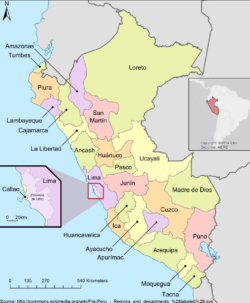
Under normal circumstances, the program implemented by Malteser Perú aims to engage seniors in healthy activities and incorporates them into the larger community at the Querecotillo Senior Center (which MI Americas helped build and has supported since 2013). Here, volunteer teachers would hold interactive workshops like dance, art, and singing classes, while volunteer medical professionals would run basic health check-ups and prescribe medication. During the pandemic, these activities ended abruptly as the original coordinator of the project was also a senior citizen. It was not until October (six months later), that things picked up again. But even then, as restrictions on social distancing remained stringent, Malteser Perú had to limit itself to the delivery of non-perishable food items and COVID-19 hygiene kits.
The lives of the 28 program participants have been deeply affected by the virus. “Six of the elderly had COVID, three went to the hospital, and four others had household members who were infected with the virus,” says Huertas-Sanchez. The husband of one of the participants passed away.
COVID-19 IN PERU
To date, Peru has suffered one of the highest mortality rates in the world, at 3.7% of cases proving fatal, second only to Mexico at 8.7%. With a population of 32 million, the country has had 1,598,593 cases and 53,411 deaths as of April 8th, 2021 according to John’s Hopkins University. After a lifetime in the informal economy, none of the seniors enrolled in the program have pensions or savings to rely on. Most of them had worked as small-scale farmers. For seniors no longer physically able to support hard labor, and without the ability to sustain themselves, moving in with their children has been the only option. Yet, unlike the reverence one might associate with older generations, Huerta-Sanchez noticed that in the households she visited, the elderly would seldom get the care and attention they needed. Over 70% of Peru’s population works in the informal economy and many have found themselves in similar predicaments during the pandemic.
LACK OF ACCESS
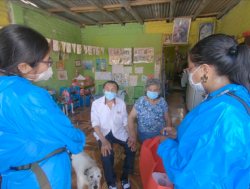
In the early days of the pandemic, one of Malteser Perú’s biggest concerns with COVID-19 was the lack of medical care and follow-up for seniors. Once someone had been released from the hospital, “no one was taking care of them after”, or checking on them to make sure they were recovering well. Without access to mobile phones and internet, the ability to monitor infection and recovery was extremely limited. In response, the team enlisted two young doctors in their last semester of medical school to visit the participants every other week. They ensured that they were receiving proper care and were taught what COVID-19 symptoms might look like. For those who had been in the hospital, they created personalized post-hospitalization regimens with exercises to follow.
WATER SHORTAGES & FREQUENT FLOODS
Querecotillo faces serious risks due to its frequent floods and the scarcity of potable water. The city is in the northern department of Piura, an arid region that suffers from occasional heavy rains caused by the El Niño phenomenon. These weather patterns are unpredictable and can be devastating, from severe water shortages to dramatic floods. Many residents might have running water in their house for only a few hours a day. To compensate, they fill large buckets when the tap is open and keep them in their house for later use. But this comes with its own set of risks, particularly the proliferation of dengue fever — an infectious disease carried by mosquitoes usually attracted to stagnant water. “I have family in southern Piura who tell me that sometimes the water is open three hours in the morning, from 5 to 8am,” says Huertas-Sanchez. “In Piura’s capital, they open the water from 6am to 8pm and at night, here’s no water.” Lack of fresh, clean water is an obstacle for hygiene, with heightened concern during the pandemic.
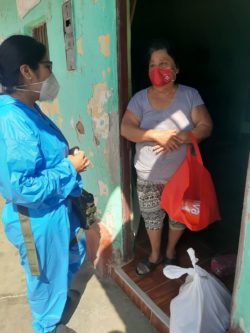
In all, Querecotillo’s seniors face a steep road ahead, while Malteser Perú continues delivering basic food items and hygiene kits to the participant’s homes. With the hygiene kits — which contain hand sanitizer, soap, and information on COVID-19 — Malteser Perú hopes to mitigate the effects of the water shortages, at least in the short-term. For the long-term, they are trying to develop a better follow-up program with the local Health Ministry to ensure that proper care and attention is given to those recovering from COVID-19, and that capacities for monitoring recovery are improved.
While the Senior Center itself remains physically closed, the team’s dedication is palpable — Huertas-Sanchez traveled over 16 hours to reach Querecotillo from Lima, where she resides. The pandemic has tested every aspect of our societies and has shined a light on many of the ills that have long plagued us. But it is the tenacity of those fighting for the vulnerable that continues to carry us through and will hopefully be remembered once the crisis is over.
